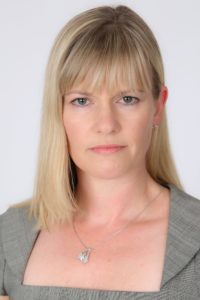European markets may be struggling at the moment but when things get tough, Mark Nichols of Jupiter European tells FundCalibre’s Juliet Schooling Latter, that’s a buying opportunity. Juliet continues her series for Professional Paraplanner with a look at this fund, which Nichols began running in October 2019.
“The downdraft we’ve seen in equity markets recently will almost certainly prove to have been a buying opportunity in hindsight. Don’t lose faith, the best companies tend to get better by proving themselves when times get tough.”
With the threat of inflation, rising interest rates and the outbreak of war in Europe, the above message to investors from Jupiter European manager Mark Nichols is a reassuring one in uncertain times.
Mark says equities have done their usual trick of trying to compound the misery by making everything seem worse and less affordable, but there is cause for optimism.
“Actually, the corporate outlook is not that bad,” he said. “There are companies with healthy balance sheets and the best corporates always provide solutions for their customers – meaning their businesses remain competitive and profitable.
“These are the last businesses you should cut and the ones we invest in. They have very predictable cashflows, and many have already survived the tech bubble and the global financial crisis. They will also survive this challenge because they are generally better positioned when growth returns than they were going into these difficult periods.”
The past few years have been anything but straightforward for Mark and co-manager Mark Heslop since they took over the portfolio from Alexander Darwall in October 2019. The pair joined from Threadneedle – where both had built up an enviable track record investing in Europe.
The process behind this fund is refreshingly simple, with a concentrated portfolio of 25-40 holdings and a style bias towards quality growth factors. The managers aim to identify world class companies across Europe which have unique products or services which others struggle to replicate, thus allowing them to grow sustainably for the long-term with all companies considered over a three to five-year time horizon.
The fund has little or no exposure to commodities or heavily regulated industries like banks, insurers, telecoms or utilities – companies that can’t set their own price or produce returns subject to market forces outside of their control.
Once the managers inherited the portfolio in 2019, they quickly began to revamp it to suit their investment style.
Mark says some ten names “that were consistent and represented a decent allocation within our portfolio” – from within the top 20 – were kept. The other 25-30 names were new names for the portfolio but were previously held at Threadneedle.
The managers also sold down a 10 per cent exposure to troubled German Fintech company Wirecard in their first six weeks.
With a revamped portfolio for 2020, the team then faced the unique challenges of Covid and the fastest sell-off in history. Mark says the team did not make many changes in this environment citing a “fairly rationale sell-down” where higher risk assets were sold and better quality assets (which the team target) performed a bit better.
He says performance was satisfactory throughout the remainder of 2020, but the fund did not have exposure to the racy growth names that led the recovery.
The fund then endured a challenging start to 2021 with around 80 per cent of the portfolio exposed to the re-opening trade. Mark says the team expected to see benefits from this, only for the stocks not to immediately respond. However, performance began to pick up in the summer.
Fast forward to today and Mark believes valuations are now at attractive levels – particularly among the quality growth names the fund targets. He says the fund currently has a portfolio of companies not only with attractive pricing power – but which are also well positioned to protect gross margins and cashflows against a fairly uncertain backdrop due to inflation.
He highlights pharmaceutical giant Novo Nordisk as an example, citing its long-track record of innovation in treating long-term, expensive illnesses. He says: “Type-2 diabetes is the fastest growing chronic illness across the world, estimated to cost health institutions $1.2-1.3 trillion a year. Treating this and preventing patients going to hospital with this issue saves an awful lot of money for the taxpayer/governments globally. That innovation is the last thing you can expect spending to be cut on.”
With Mark pointing to some 200 attractive options in the fund’s investment universe, choice is not the problem – cutting the list of opportunities down, is.
Having faced a style headwind, it has been far from smooth sailing for this fund over the managers’ tenure and it has returned 11.5%* compared with 17.7% for the sector average*. However, the managers have continued to stick to their stock selection process and have demonstrated their ability to outperform longer term. With a portfolio of industry leading companies offering protection should we enter recession, while also having the strength to thrive should markets recover from here, I believe it’s a fund worth sticking with.
*Source: FE fundinfo, total returns in sterling, 1 October 2019 to 27 May 2022
Past performance is not a reliable guide to future returns. You may not get back the amount originally invested, and tax rules can change over time. Juliet’s views are her own and do not constitute financial advice.
































